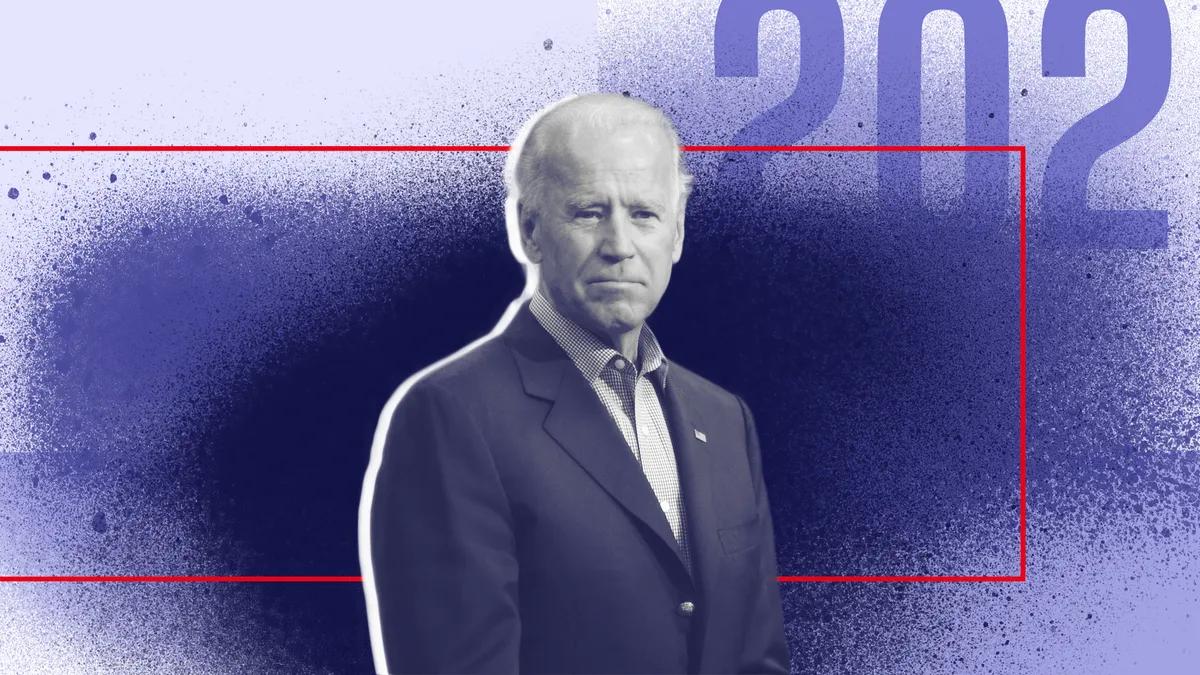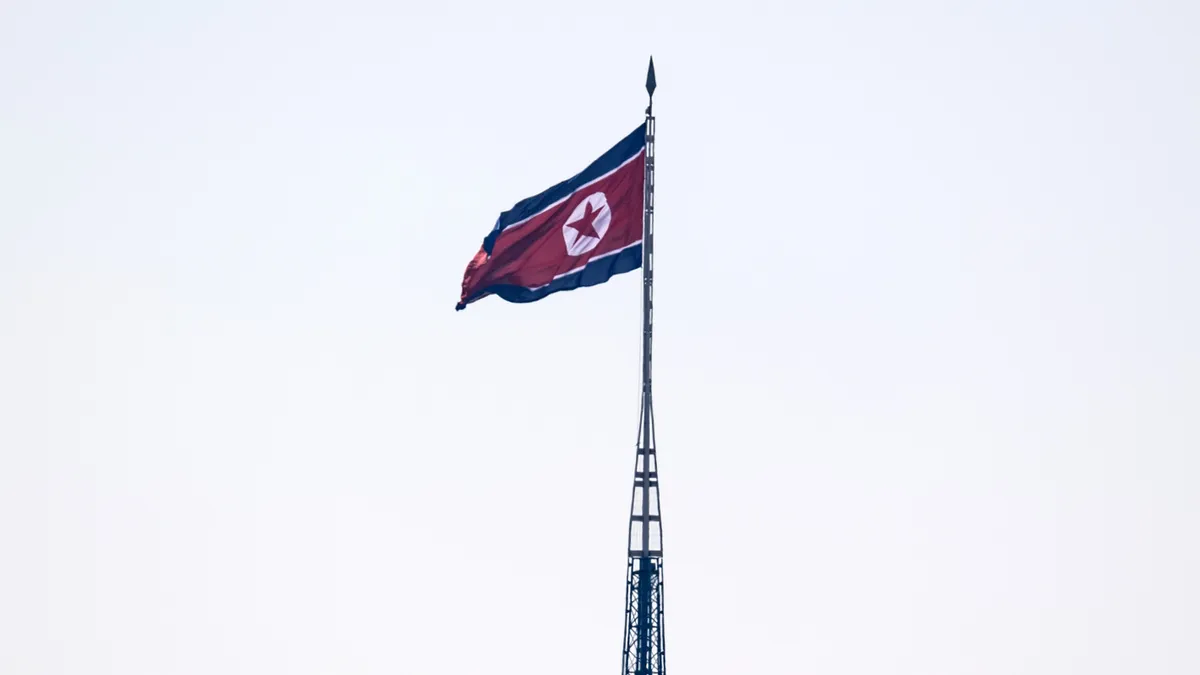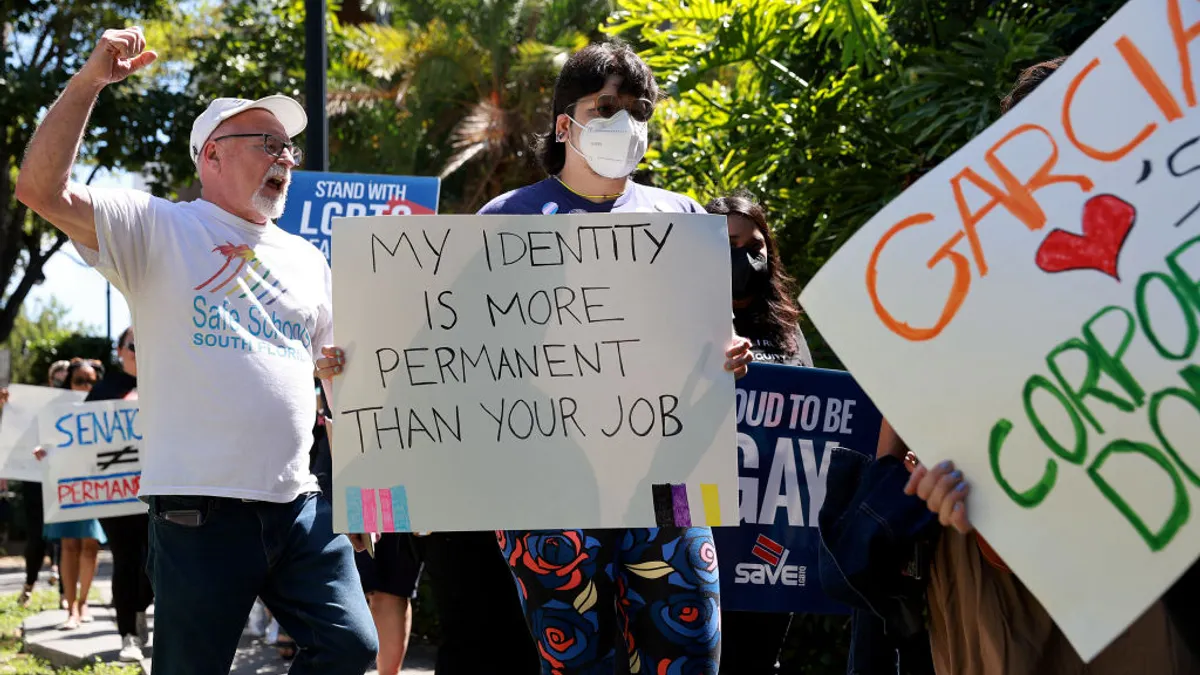Employers of all sizes and industries are likely to see changes to their regulatory environment after presumptive president-elect Joe Biden is installed.
Because of the low likelihood of a progressive bloc in the Senate, Biden’s presidency will not have its preferred suite of legislative options available as it begins. But it can start to reverse some of President Donald Trump’s executive orders and also issue some of its own. Multiple sources that spoke with HR Dive said they believe executive orders and updated enforcement of existing laws will be the primary labor focus of the Biden administration, especially in the short-term, along with managing a COVID-19 response that incorporates stronger measures for employee safety.
"I think we're likely to see a focus on relief and recovery efforts, in particular [...] through a lens of what workers need to work safely in this moment," Celine McNicholas, director of government affairs and legal counsel at the Economic Policy Institute, a left-leaning policy think tank, told HR Dive. "No one having to return to work in an unsafe situation; looking at ways to ensure that workers are not denied employment insurance protections," she added.
Coronavirus response and safety
First and foremost, the nation is still dealing with a pandemic that is in the midst of a "second wave." The U.S. Department of Labor’s Occupational Safety and Health Administration (OSHA) is expected to enact emergency temporary standards, such as workplace safety and sanitation guidelines for COVID-19, according to the Biden platform, which also called for doubling the number of OSHA investigators and a "restart package" to help business owners "cover the costs of operating safely, including things like plexiglass and PPE."
Those in industries which rely on low-wage, hourly workers, such as restaurant, retail, food service and hospitality, should closely watch for action on tipped wages, minimum wage and worker classification, Myrna L. Maysonet, partner and chief diversity officer at Greenspoon Marder, LLP, told HR Dive.
"Another area where I think you're going to see immediate impact is [OSHA], and in law enforcement guidelines around the coronavirus," Maysonet added. "[T]he difference in [Biden’s] view of the effects of coronavirus and the protection of employees is where I think we’ll see a drastic change early on." She said this is likely to affect manufacturing and food production companies, among others.
Democratic politicians and worker advocacy groups have admonished OSHA’s actions under the Trump administration during the pandemic, citing a failure to contain the virus in the interest of keeping business going and accusing the agency of dragging its feet on enforcement. Meat producers JBS Food and Smithfield and retail giant Amazon are among the companies criticized for their practices. Maysonet cautioned employers to expect stronger penalties for violations in the future.
Immigration
Trump and Biden differ greatly in their views on immigration. In addition to changes in spending across the Labor Department and the U.S. Department of Homeland Security, Trump issued more than 400 executive orders on immigration, according to the Migration Policy Institute, addressing border enforcement, refugee resettlement and asylum, Deferred Action for Childhood Arrivals (DACA), immigration courts and visa processes.
The Biden platform vowed "take urgent action" to restore asylum, eliminate the "Muslim ban" and reform temporary visa programs. He acknowledged immigration's role in the U.S. economy and its value to employers.
"There are indications that the president-elect is prepared to use executive actions to reinstate DACA and to roll back the green card bans targeting Muslim-majority nations," Richard Burke, CEO of Envoy Global said.
While the Trump Administration’s approach to the H-1B program in some ways frustrated employers, Burke noted that it also improved in some ways and that even before Trump, the program had bipartisan support for reform.
“Not all changes implemented over the past four years were negatively received by our clients," he said. "One example is the introduction of electronic registration for the annual H-1B cap. Ultimately, there are many people in both parties who agree the H-1B program needs reform. How a Biden administration may address larger changes to the immigration system will largely depend on the final make-up of the Senate."
Given their vast talent needs, many U.S. employers recruit and seek out international workers, especially with the significant, growing demand for STEM and computer talent, according to the U.S. Bureau of Labor Statistics.
"While we don’t know precisely how much more favorable a Biden administration will be for the U.S. immigration system, we do know employers feel the pain of this talent shortage and want the ability to sponsor more skilled foreign nationals to fill key roles at their organizations," Burke said.
Unions
Under Trump, McNicholas said, the National Labor Relations Board "promulgated rule after rule that made it harder to have a union when workers want one, harder to keep a union when you have one, and harder to hold an employer to come to the bargaining table when necessary." She mentioned the administration’s election rule and the joint employer standard as examples.
In his platform, Biden expressed support for unions and promised to "[c]heck the abuse of corporate power over labor and hold corporate executives personally accountable for violations of labor laws," and "[e]ncourage and incentivize unionization and collective bargaining." Biden boasts endorsements from more than 40 unions and trade groups and multiple union leaders expressed optimism to Politico reporter Megan Cassella, who also noted that two union leaders were named to Biden’s transition advisory board.
While some argue Biden’s legislative record on labor is not reflective of someone who is staunchly pro-union, reaching for his stated goals would make him the most pro-union president in recent memory, sources said. McNicholas said this stance represents a bit of a deviation from previous Democratic presidents including Barack Obama, who could be characterized as pro-labor but hardly ushered in a new era for organized workers.
"I think that for working people, the ability to be in a union has not been particularly championed by Democrats," McNicholas said. "In my view, it does less well under Republican control but it has not traditionally been an area where Democratic politicians have been willing to expend political capital."
Maysonet noted that Biden "will be setting the goals in a completely different landscape" than Obama, however, and that the pandemic and national movement against racism have led employers to recognize their responsibility to treat workers well beyond the requirements of the law. She recommended employers review their employee relations strategies and ensure they aren’t assuming liabilities that the Trump administration may not have been as fervent in trying to find.
"At the end of the day, you have to do what is best for your organization and be realistic,” Maysonet explained. "If you want to attract good people with a high level of skills that you need, you have to foster an environment that is fair. You have to pay in a fair manner." She added that her most successful employers proactively provide worker compensation, benefits and protections beyond what the government requires.
"If you want to nickel and dime people, it may in the short term give you something but it's always going to be hampering your success."





















